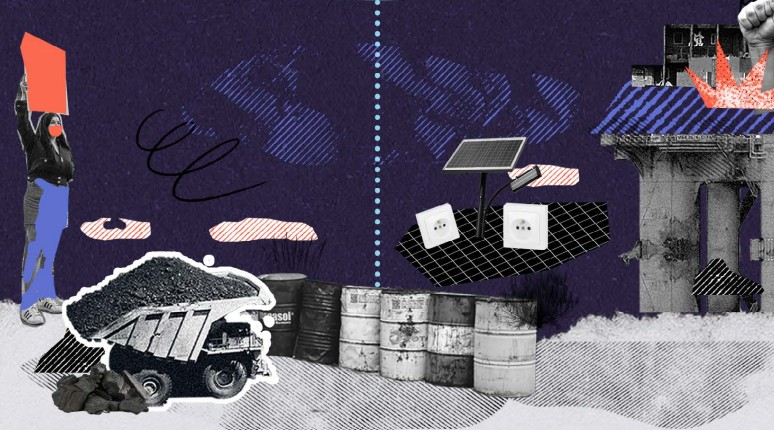In late October 2020, as a second wave of COVID-19 swept across the Northern Hemisphere – and it became clear that the disruption from the pandemic would be long lived – the PWYP Secretariat hosted a global conversation to stress-test our movement’s global Vision 2025 strategy.
Vision 2025 was adopted by PWYP members in 2019. It lays out a vision of the world we want, and charts our collective path, goals and ambition for the five years to 2025.
Little did we know that COVID-19 would shift the ground under our feet as we got ready to embark on the first year of implementation. While we rapidly adapted our methods of work and established new ways to support each other across the movement at the onset of the pandemic, we also wanted to examine whether our global strategy was still fit for purpose in this new context.
To help us answer this question, we convened an impressive group of 40 participants, spanning over 30 countries and coming from diverse backgrounds, including civil society, academia, foundations, governments and industry associations active across the natural resource governance field.
Guided by one of Africa’s leading futurists, we explored four distinct possible future scenarios that could unfold as a result of the pandemic. For each of these scenarios we considered opportunities and threats and the strategic adaptations that PWYP may need to factor in to strengthen the resilience of the movement and to consolidate its influence.
The report of the conversation is available for download here. There was a rich exchange of views, and while it is impossible to predict what the future holds, we were able to identify nine key trends and questions we should be asking ourselves as we move forward. These trends broadly fall under these three categories:
- Shifting power – traditional power holders such as Western democratic governments may see their influence and soft-power diminish. Asian countries (in particular China), private corporations, financiers and autocratic, populist governments may come to dominate the new world order, at the expanse of multilateral institutions of global governance. Many doubt that good governance, the rule of law, transparency and human rights will feature high on the agenda of the new power brokers.
- Energy transition to a low carbon economy – the pandemic has contributed to plummeting oil demand and many governments are considering green deals to build their economies back, which may accelerate the transition to renewable energy. The decline in fossil fuel production needs to be carefully managed as millions of jobs are at risks of disappearing. PWYP can contribute to ensure the race for renewable energy minerals doesn’t repeat the governance/environmental/social problems of fossil fuel extraction and that the energy transition is fair and equitable.
- Shrinking funds for civil society – as the economic impact of the pandemic affects the coffers of governments and philanthropic foundations alike, there is a real danger that funding for social change will shrink, and perhaps even more so for our agenda to promote transparency, participation and accountability in the extractive sector. We need to think about ways to strengthen our financial resilience and advocacy impact through broader coalitions for change by partnering more closely with other, like-minded movements, such as the climate justice, tax justice and women’s rights movements.
We would like to hear your thoughts and comments as we continue to consider the implications of the pandemic for our work globally.











